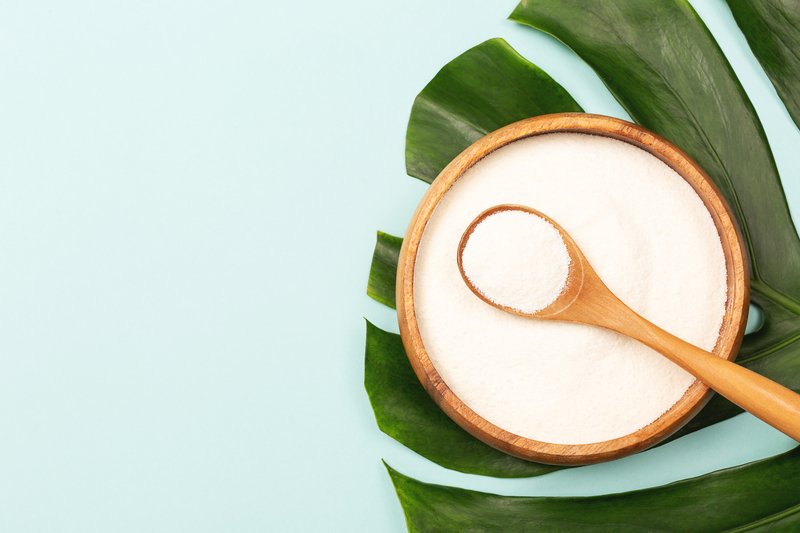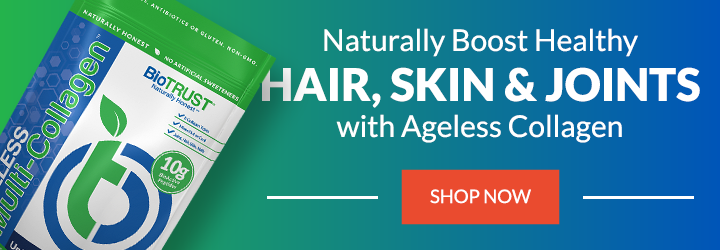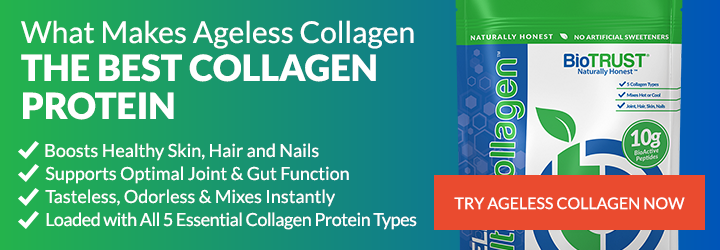Do Collagen Supplements Work? See the Science

Store shelves lined with attention-grabbing labels, making some almost too-good-to-be-true promises. It’s hard to know what to believe anymore. This has become such a common practice that shopping has become a tiresome task involving copious amounts of research and critical thinking.
With so many claims floating around in the marketplace, how are you supposed to decipher what is true and what’s not? We want to set the record straight on whether these allegations are a bunch of bologna, which brings me to one of the hottest products on the market: collagen.
Collagen is one of the most sought-after and talked-about products in the world of wellness. It has taken the spotlight, and everyone is looking to get their hands on this miracle protein, but why? Do collagen supplements work?
In today’s article on “Do Collagen Supplements Work?”, we will cover:
- What is Collagen?
- Do Collagen Supplements Work?
- Best Sources of Collagen
- Not All Collagen Supplements are the Same
What Even is Collagen?
Collagen is a vital component to the body, making up about a third of all the protein in the human body—that’s more than any other type of protein! It is an essential building block to bones, skin, muscle, and tendons.
Collagen is naturally produced in the body; however, the body’s ability to produce collagen naturally decreases as we age. Even more, external factors such as sun exposure, smoking, and poor diet can inhibit collagen production, which is why health-conscious consumers are on the hunt, looking to increase our body’s collagen.
One of the best and easiest ways to increase the availability of specific nutrients in the body is through supplements. Collagen supplementation, in particular, has long been used as an ancient remedy to treat a range of aliments. Chinese cultures have even been traced back hundreds of years for transforming collagen into drinks and soups.
In more recent years, collagen supplements have been popping up left and right, right along with the emerging research supporting collagen supplementation. Studies suggest collagen can generate beneficial effects on joints, skin, hair, nails, bones, and gut health.
Although we are still in the early era of collagen, almost all of the existing research on the benefits of collagen has focused on collagen supplements. As a result, collagen supplements have been touted as the long-lost Fountain of Youth we have all been looking for. But the imperative question is do collagen supplement work? Let’s take a deeper look.
Do Collagen Supplements Work? See the Science
A lot of the research on collagen benefits has fixated on its potential for improving joint health. This makes sense as collagen accounts for 70 – 80% of the dry weight in ligaments. 1 In small trials, oral collagen supplementation has been shown to reduce exercise-related joint pain among healthy adults. 2,3 A few other studies have also found a reduction in activity-related joint pain among athletes. 4,5 As for arthritis, a 2018 review found that hydrolyzed collagen supplements provided significant relief from arthritis-related pain. 6
The other major focus in collagen research has been on skin health. This is because collagen is the most plentiful protein in the skin, making up 75 – 80%. Research has shown that adding collagen into the diet may improve the skin’s hydration and elasticity.
One double-blinded, randomized, placebo-controlled trial found that daily oral supplementation with collagen resulted in a significant improvement in skin elasticity through the analysis of skin biopsies. 7 Another placebo-controlled trial found that supplementation with collagen peptides for eight weeks significantly improved skin hydration and increased collagen density in the skin, while also reducing collagen fragmentation in the skin. 8
Moreover, in a randomized controlled trial, collagen supplements resulted in clear improvements in skin appearance. 9 Several other studies also have suggested that collagen supplements may reduce visible signs of skin aging, including wrinkles and skin dryness. 10,11,12
Collagen is also thought to aid in maintaining bone health and guarding against osteoporosis. That is, collagen peptides have been shown to stimulate the cells that synthesize bone. 13,14 Additionally, a handful of trials suggest that collagen supplementation may help improve bone mass and prevent bone loss. 15,16
Among other benefits relating to collagen are that it supports hair, nail, and gut health. One study found that consumption of collagen peptides increased nail growth and decreased nail brittleness and breakage. 17 Collagen is also a primary component of the cells in the gut lining.
Clearly, the use of collagen supplements is widely supported, and more research will advance as collagen continues be researched in the wellness industry. But it’s important to remember that not all supplements are created equal, especially as collagen can vary in source and type.
Best Sources of Collagen
Collagen can come in three main forms: hydrolyzed, gelatin, and raw. Research has shown that your body may absorb hydrolyzed collagen most efficiently. 18,19 Beyond this, there are as many as 30 different types of collagen! Keeping track of all the different types of collagen can get overwhelming and difficult to understand.
Luckily, research has narrowed down to the five main types of collagen our bodies can benefit most from. These are types I, II, III, V, and X. Consuming these five key types of collagen is essential to making sure you are gaining maximum benefit from collagen and experience powerful results.
Collagen Buyer Beware
With this in mind, shopping for the right collagen supplement can become a game of buyer beware. Many collagen supplements do not contain all the key types of collagen needed, and even more products advertise collagen where it would not provide much or any benefit.
Ingested collagen supplements such as powders and capsules have been shown to produce the best results. Only when taken orally do amino acids signal the body to increase collagen production.
This is in comparison to topical application, which cannot prompt the same change. Collagen as a molecule is simply too large to penetrate the skin, meaning that topical collagen doesn’t stimulate collagen on a cellular level the way ingested collagen supplementation will. Topical collagen may produce local results at the skin’s outer layer; however, those results are more likely to be temporary.
As a whole, these reasons are why Ageless Multi-Collagen is among the best in show. Ageless Multi-Collagen features five different types of collagen, in the scientifically correct proportions. These five types contain all the essential amino acids you need, including a naturally fermented form of tryptophan, which is typically missing from collagen protein, making it a complete protein. Likewise, Ageless Multi-Collagen is naturally hydrolyzed and features BioActive Collagen Peptides, which makes a monumental difference because they are absorbed intact and trigger the body to make more collagen.
As it turns out in regards to the question “Do Collagen Supplements Work?”, there just may be more truth behind the wonders of collagen than originally thought. This just proves it’s important to do your research before buying into the marketing mayhem. Science supports collagen’s effectiveness in a variety of areas within the body when used as a supplement. Subsequently, collagen supplementation can be a beneficial resource on your journey to improve or maintain health, and although it may not exactly be the Fountain of Youth it has been claimed to be, the science indicates it is certainly one step closer to it.







